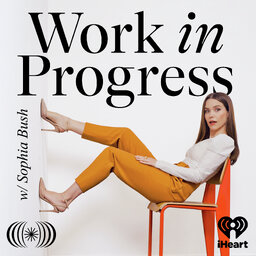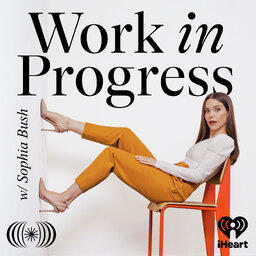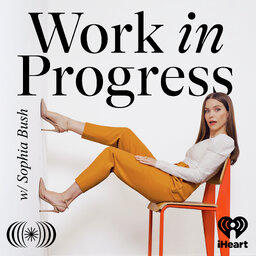Today on Work In Progress, Sophia is joined by Chris Meyer (@chrismeyerauthor). Chris is a former filmmaker and funeral homeowner, a writer, entrepreneur, and a licensed New York State attorney who has had a truly fascinating career path. Chris graduated from both Brandeis University and Vermont Law School where he earned a JD and a Masters in Environmental Law and Policy. However, having always dreamt of making films, Chris began his career by writing, directing, and producing a low budget film called "Black is White". After realizing that making a living as a filmmaker came with tremendous challenges, he took an opportunity in the funeral home industry and went on to own and operate multiple funeral homes. After years spent in the funeral home industry, Chris was inspired to write his first book, Life In 20 Lessons: What A Funeral Guy Discovered About Life, From Death, an introspective and heart-warming non-fiction story of love, loss, and living our best lives told from the perspective of a man who was constantly surrounded by death. Chris went on to write a second, recently published novel, The ‘Wood, a raw and powerful portrait of the inner-workings of the filmmaking industry. In addition to two successful novels, Chris is also a tech executive, most recently having built funandmoving.com, the world’s largest exercise platform for lively adults over sixty-five. On today’s episode of Work in Progress, Sophia and Chris discuss his early years growing up in New York, his less-than-traditional career path, his debut film “Black is White”, the experience he had building a life in Los Angeles, what he learned from owning funeral homes and how this led him to write his first novel...and so, SO much more.
In 1 playlist(s)
Work in Progress with Sophia Bush
Work in Progress with Sophia Bush features frank, funny, personal, professional, and sometimes even …Social links
Follow podcast
Recent clips

Work in Progress: Jeannie Mai
55:24

Work in Progress: Mika Brzezinski
1:01:11

Work In Progress: Sophia answers fan questions
23:52
 Work in Progress with Sophia Bush
Work in Progress with Sophia Bush